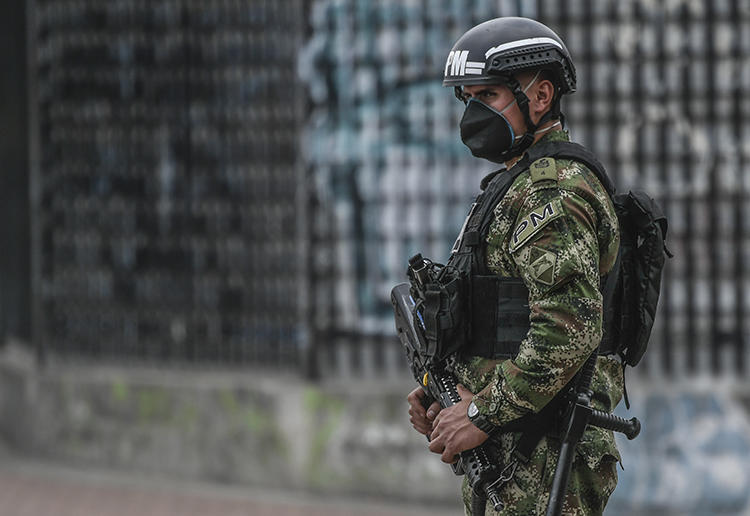Bogotá, April 17, 2020 – Colombian authorities must swiftly and thoroughly investigate the death threats against journalist Eder Narváez Sierra and ensure he has adequate protection, the Committee to Protect Journalists said today.
On April 13, an unidentified person who claimed to command a drug trafficking group sent WhatsApp messages to Narváez taking credit for two killings in the northern Colombian town of Caucasia on April 12, which Narváez had covered; the messages warned Narváez “not to talk so much,” and said the journalist would be killed if he did not heed that warning, Narváez told CPJ in a phone interview.
Narváez is the Caucasia regional correspondent for Teleantioquia TV, a Medellín-based broadcaster, and is the founder and editor of NP Noticias, a local news website, he said.
The text messages said the recent killings were “just the beginning,” accused Narváez of spreading fake news, and said that “the only news that will be heard in the coming days is that they killed the NP guy.”
A police officer in Caucasia, who requested anonymity because they were not authorized to give public statements, told CPJ that the police are investigating the threats. Narváez, who has received death threats in the past for his reporting, said he had filed a criminal complaint with the attorney general’s office and applied for help from the government’s National Protection Unit, which provides security to threatened journalists and social leaders.
“Colombian officials, especially the National Protection Unit, must take immediate action to respond to the threats against Eder Narváez Sierra and ensure his safety,” said CPJ Central and South America Program Coordinator Natalie Southwick, in New York. “As journalists and human rights defenders across Colombia face increasing deadly violence from armed groups, the state must uphold its obligation to protect them.”
The texts were sent from someone who described themselves as “Manuel, alias El Negro,” the commander of Los Caparrapos, an armed group involved in cocaine trafficking, extortion, and illegal gold mining, according to Narváez and the Medellín-based think tank InsightCrime.
Narváez told CPJ that other media outlets reported on the April 12 killings of two people in Caucasia, but speculated that his report may have angered Los Caparrapos because it included the names and photos of the murder victims.
Asked about possible motives for the threats against Narváez, the police officer told CPJ, “We don’t know. There could be a thousand different reasons.”
Naváez told CPJ that the police have promised to patrol the area around his house in Caucasia with greater frequency, and that the protection unit is studying his case.
Meanwhile, Naváez said he has stopped reporting and is staying in his home.
Caucasia, located in the northern Antioquia state, has long been a dangerous area for journalists, as rival armed groups fight for control over drug trafficking routes and plantations of coca, the raw material for cocaine, according to CPJ research.
